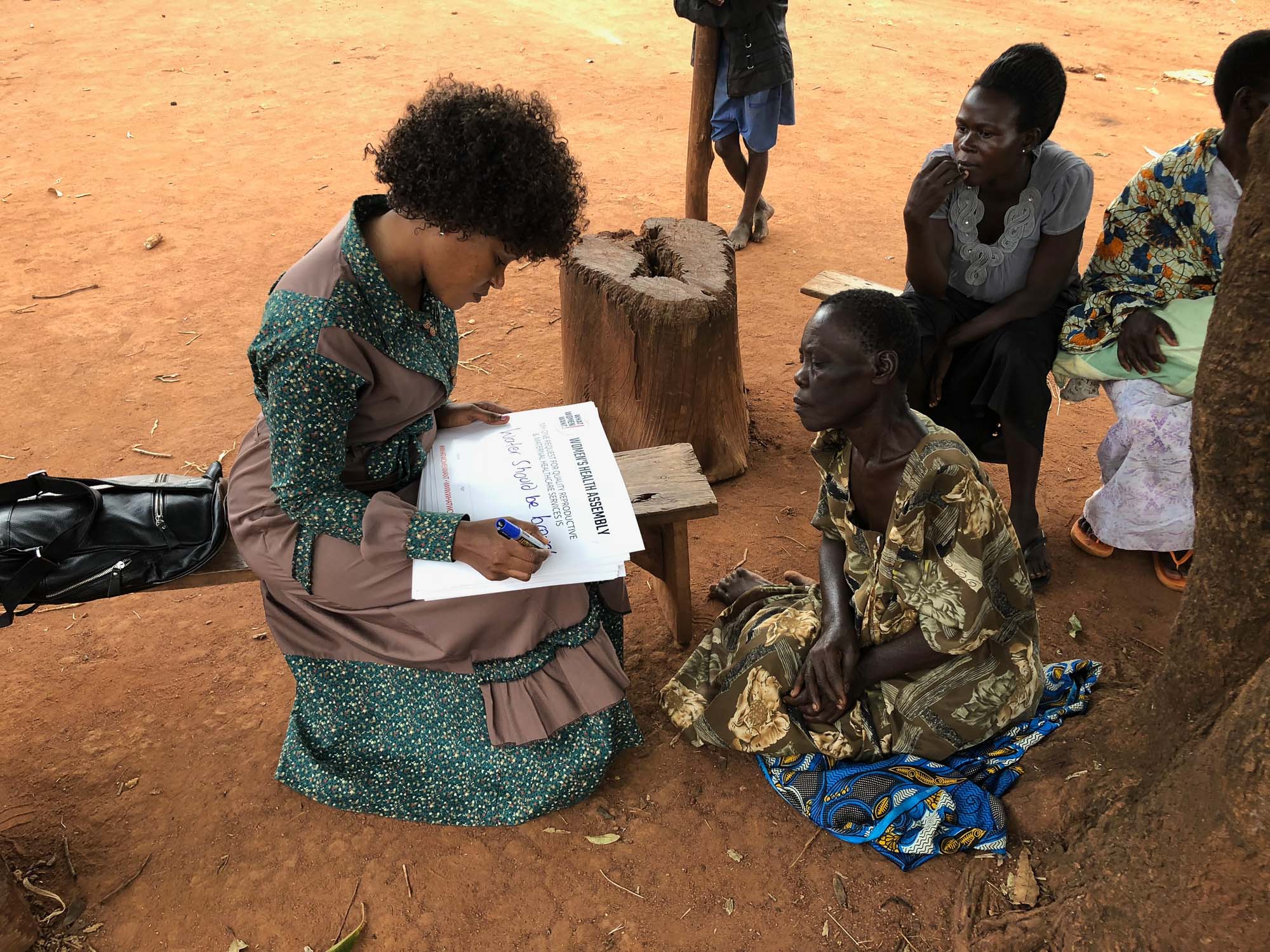
Sustainable Development Goals
SDG 3: Good health and well-being
SDG 5: Gender equality
Impact
- Governments and other relevant institutions are held to account for health and gender equality
- Health and social systems enable equitable, dignified, and quality care and treatment
- Health and rights of women, girls, and newborns are advanced
Outcomes
- Social norms support women and girls exercising power
- Decision-making increasingly includes and is influenced by women and girls
- Health and social services are enhanced at points of care
- Health and gender resources – financial, human, and material – are equitably allocated and distributed
- Health and gender politics are amended, adopted, monitored, implemented and enforced
Strategies
- Mobilize women’s and girls’ health and gender equality demands
- Promote individual and community health literacy and healthy behaviours
- Support women and girls to know their rights, entitlements, and negotiate in their interests
- Organize communities to directly influence policymakers and duty-bearers to make change from the local to global level
- Create opportunities for women and girls to shape and share their stories for their own purposes
- Cultivate health and gender equality champions and allies – including men, boys, partners, families, community members, service providers, and policymakers
Foundation
WRA’s work is rooted in the self-articulated needs and wants of women and girls, including those on behalf of newborns.
Enabling Factors
- Data and good practice underpin women’s and girl’s demands
- Potential exists for supply side interventions to meet demands
- Civic space supports individuals and groups to speak out and collectively organize
- WRA membership comprises groups and individuals representing many different identities, sectors, and intersecting agendas
Core Principles and Values
- Support women and girls in all their identities and diversity, including non-binary gender identities with lived experience of inequality
- Confront overlapping forms of identity discrimination and limitations on bodily autonomy and decision-making
- Actively challenge systems of oppression and spread power within and outside of the WRA movement
- Routinely examine our intentions and impact and hold ourselves to account
